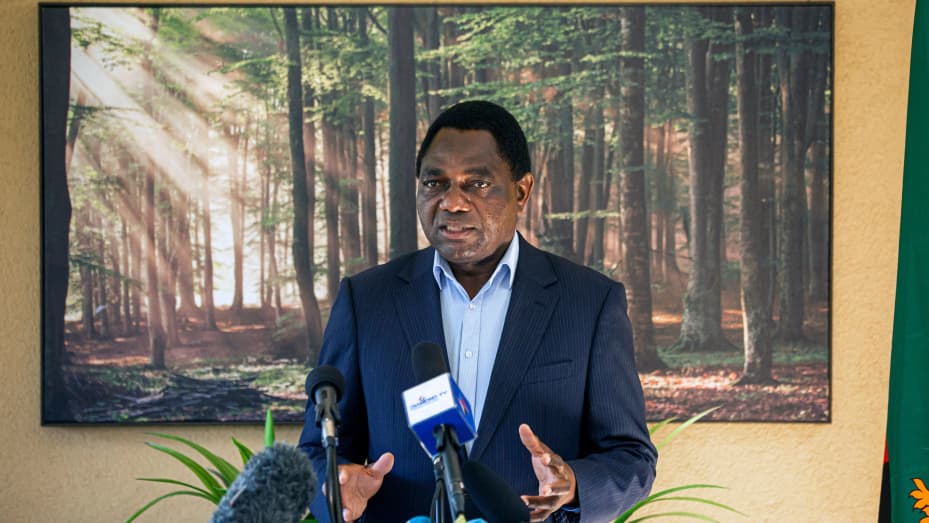PRESIDENT Emmerson Mnangagwa will be part of heads of state and government who will today grace the inauguration of independent Zambia’s seventh president, Hakainde Hichilema, in Lusaka.
The new dawn in Zambia came after Hichilema trounced the outgoing president Edgar Lungu after polling 2,8 million ballots against 1,7 million — votes more than enough to avoid a run-off poll.
The Zimbabwe government and the opposition parties should draw huge lessons from the winds of change which blew across Zambia and one of them is simple — respecting the people’s will.
Hichilema, a business magnate in farming and tourism, among other interests, walloped Lungu mainly because of the economic situation obtaining in Zambia; and his financial and organisational muscles. All economic indicators in Zambia didn’t favour Lungu. The economy became his biggest enemy, with the youth, the majority of the population, clamouring for jobs. Some were in voting queues clad in university graduation gowns, just to demonstrate their disillusionment with Lungu’s government that failed to create employment, but caused a ballooning foreign debt of over US$12 billion.
One of the lessons to be drawn by Mnangagwa’s government from Zambia is that unemployment breeds disenchantment and costs votes. The level of unemployment in the country is staggering to say the least. The state of the economy, though it has been improving since mid-last year, is hurting the ordinary man and the downtrodden. It’s incumbent upon Mnangagwa and his ruling Zanu PF to implement fast economic recovery programmes to benefit the ordinary man and this can only be evidenced through stabilisation of prices of basic goods and services, and increased disposable income. Citizens are also looking at rapid infrastructural development and on the score, Mnangagwa’s administration has been on the money.
In the countdown to the Zambia elections, Hichilema demonstrated his organisational skills when he convinced eight other opposition parties to rally behind his presidential candidature.
The opposition parties were led by politicians of high regards among the society who pulled votes to Hichilema, who was connected to the disgruntled youth through social media and spoke their language well.
In Zimbabwe, we have seen the opposition splitting into various sheds — further splitting voters ahead of elections in 2023. The political messaging of the opposition is not only bad, but terrible. At one stage they encourage the youth to register to vote, and at times they claim Mnangagwa and his government are already rigging the 2023 people.
The opposition has no clear cut policies on how this country can be turned around as an alternative to the current government. There is an exhaustive list of lessons to draw from Hichilema’s victory!

